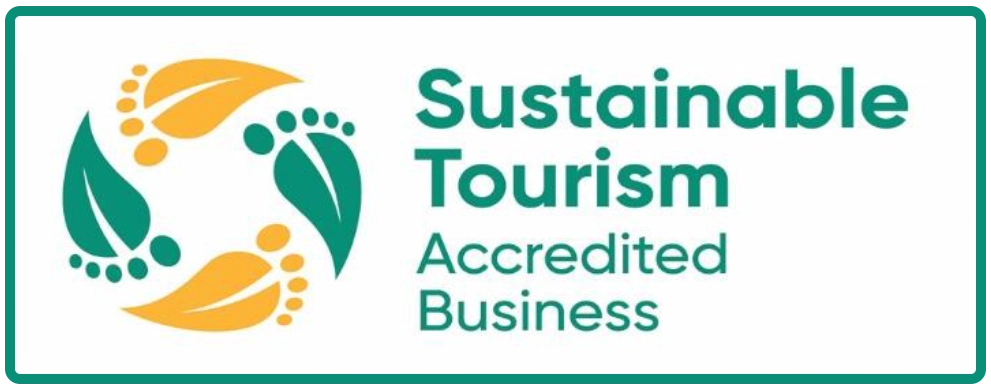What Is Coral Bleaching, and Is It Happening on the Great Barrier Reef?

The main cause of coral bleaching is climate change, followed by river pollution and the acidification of the ocean. Since 2000, the Great Barrier Reef has suffered through six mass bleaching events, including the 2022 La Nina phenomenon and unusually warm sea surfaces in back-to-back years over 2016 and 2017 (which caused an overall coral mortality of 22%). But what exactly is coral bleaching? How bad is it and can we reverse its ever-increasing presence on the Great Barrier Reef?
To fully understand the effects of climate change on the reef we have to understand how healthy coral functions. Healthy coral is covered in itsy bitsy little algae that cling to the polyps’ tissues. While the algae makes a safe home out of the coral, the coral feeds off of the byproduct of the algae’s photosynthesis. The algae is also a major contributor to the vibrant colours that adorn corals. However, when corals come under stress they eject the algae, leaving their bare white skeletons exposed to disease and starvation. The two rely on each other for survival.
Now let’s breakdown the kinds of stresses that can cause corals to expel their algae. First and foremost is the increasingly rising temperatures of the ocean. A rise as little as 1 degree can cause polyps to stress and expel the algae from their tissues. Another major contributing factor to bleaching is run off from rivers. Whilst Queensland is known for its beaches, reefs and rainforests, few tourists are aware of the magnitude of deforestation practices. Be it farmers clearing land for livestock or developers clearing land for housing, meaning there are no roots holding the topsoil in place, in turn leading to erosion.
There are 34 rivers that feed into the Great Barrier Reef with an estimated 17 million tonnes of sediment flushing into rivers (and eventually out to sea) every year. So why don’t runoffs and corals get along? On reefs close to land, silt and clay can cloud the water around corals and smother the minuscule communities of algae and polyps, inhibiting the process of photosynthesis and forcing the algae to dislodge for survival. Similar to the effects of rising temperatures, this is when we see corals in their bare state, white and bony. The corals aren’t dead at this point, however, if the algae aren't able to return the corals will eventually die from starvation or disease. And we haven't even taken into consideration microplastics and toxic chemicals from fertiliser that comes out with the runoff!
Is There Coral Bleaching on the Great Barrier Reef?
In a 2021 study conducted at James Cook University's ARC Centre of Excellence for Coral Reef Studies, 98% of the Great Barrier Reef has experienced bleaching since 1998. Since 2016, 80% of the reef has experienced extreme bleaching. These stats are alarming, but by no means are they a death sentence for Far North Queensland’s crown glory. Reefs are able to recover from bleaching events, given that they’re afforded the time and temperatures to do so. As temperatures continue to climb, however, this becomes more and more difficult to pull off. So while the short-term future of the reef remains peachy, its long-term future is in great peril. Unfortunately, Australia’s economy is drastically entwined with fossil fuels and our plan to achieve net zero emissions by 2050 is lacklustre.
How Can We Save the Reef From Bleaching?
First and foremost, you can visit the reef! Come and fall in love with the underwater wonderland for yourself, take photos, and share stories with your friends. The more people who develop a special relationship with this magnificent ecosystem, the better! It matter if you're an experienced diver or if you've never even snorkelled, Cairns has an infinite array of snorkelling and diving day tours, liveaboard experiences and diving classes to suit your level. In fact, on top of being one of the best places in the world to dive, Cairns is also one of the best places to learn!
When High School Musical hottie and diving enthusiast Zac Efron brought his Down to Earth docuseries Down Under, he consulted the experts on what measures they're taking to save the reef. The third episode of season 2 presents a highly accessible and informative explanation and investigation into all things reefy for those wanting to take their knowledge to the next level. To summarise sexy and sustainable Efron's conversations with cutting edge researchers and marine biologists, preventative measures such as maintaining the health of mangroves (which filter runoff and prevent erosion) and regenerative measures such as coral harvesting.
Coral harvesting happens in areas affected by hurricanes, which leave a rubble of broken reef debris in their wake. Small coral fragments are collected and taken back to a boat where they're zip-tied to frames called 'reef stars' — this is a very fragile process that can only be performed by hand. The reef stars are then lowered into an underwater nursery until they're ready to be planted in a coral garden in need of rejuvenation. The episode also includes displays of coral tanks with varying degrees of climate, to provide examples of what the reef will look like overtime with rising sea temperatures. Efron's message is consistent with researches: 'We're running out of time,' and we all have to play our part.
To do your part in conserving the reef from home be sure to be good boys and girls with your waste and recycling, minimise use of fertiliser, use green modes of transportation when you can, and try to conserve energy usage when possible.
















